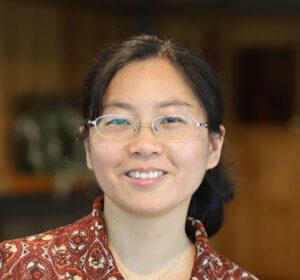Course Overview
Principles and practice of programming. Computing fundamentals: variables, types, scope, objects, classes, functions, parameter passing, input/output, conditionals, and iteration. Defensive programming techniques, including exceptions. Program testing and debugging. Includes programming lab.
The primary purpose of this course is to introduce student to the fundamentals of computer programming via the Python programming language. By the end of the course, student should be adept enough with Python to write modest but useful whole programs; to make use of existing libraries; to write reusable modules for use in larger programs; and to read and comprehend others’ code. Furthermore, students should have a grasp of programming fundamentals that they can apply to other settings and to other programming languages.
All students who successfully complete the course will receive a Certificate of Completion and have the opportunity to request a Syracuse University noncredit transcript.
Learning Objectives
Having successfully completed this course, students are expected to:
- Recall the 5 basic components of the program-design recipe.
- When given an informal English specification of a problem, extract a relevant collection of abstract types from that specification (i.e., the contract).
- When given a specification of a program, construct concrete examples that satisfy that specification.
- Python fundamentals
- When given a Python expression, determine its value.
- When given a Python program or fragment and relevant input, calculate the result of that program/fragment.
- When given an informal but fairly precise English description, write a Python function or program that accurately captures the desired behavior.

” Syracuse University Summer College – Online provided an engaging experience that expanded my education, helped me prepare for college, and immersed me in a delightful community of staff and students.”
— Sara H., Summer College – Online student, 2020
Course Information
Course Prefix and Number: CPS 196
Format: Online
Eligibility: Students must be of rising high school junior or senior status – or a 2026 high school graduate.
Credit: 3 Credits or Noncredit
Grading:
- Credit: A-F
- Noncredit: Pass/Fail
Cost:
- Credits: $3,165
- Noncredit: $1,995
Program rates are subject to change and will be approved by the board of trustees. Discounts and scholarships are also available.
Program Information
Summer College – Online: Explore college life before stepping foot on campus! High school students can enroll in a college-level course, pursue their academic interests, and meet likeminded students in daily virtual events and activities.
Course Dates and Details
| Program | Course Dates | Synchronous Class Time (Eastern Time) | Credit/Noncredit |
|---|---|---|---|
| Summer College – Online | 3-Week Session I: Monday, July 6 – Thursday, July 23, 2026 | MTWTH; 3:30 – 5:30 p.m. | 3 Credits or Noncredit |
To see if this course is ‘open,’ refer to the full course catalog.
Course Requirements
Technology Requirements
- Laptop or desktop computer with a webcam and mouse
- Thonny Python (any version above 3.6 free to download at thonny.org)
- Headset with microphone
- Reliable internet access
- A space conducive to taking an online class (without distractions)
Typical Day
Tentative Schedule
- TBD
When class is over, and on weekends, students can look forward to various Summer College virtual activities to meet and connect with other students across the world. Check out our Virtual Campus Experience page for more information!
Faculty Bios
Li Wang

B.S. in Electrical & Computer Engineering from Central South University
Worked 3 years as software engineer at a Telecommunication company
M.S. in Computer Science from Louisiana Tech University (working as RA/TA)
Worked 8 years in a state university IT as a senior database programmer
Taught at SU EECS since 2014 as a teaching professor
